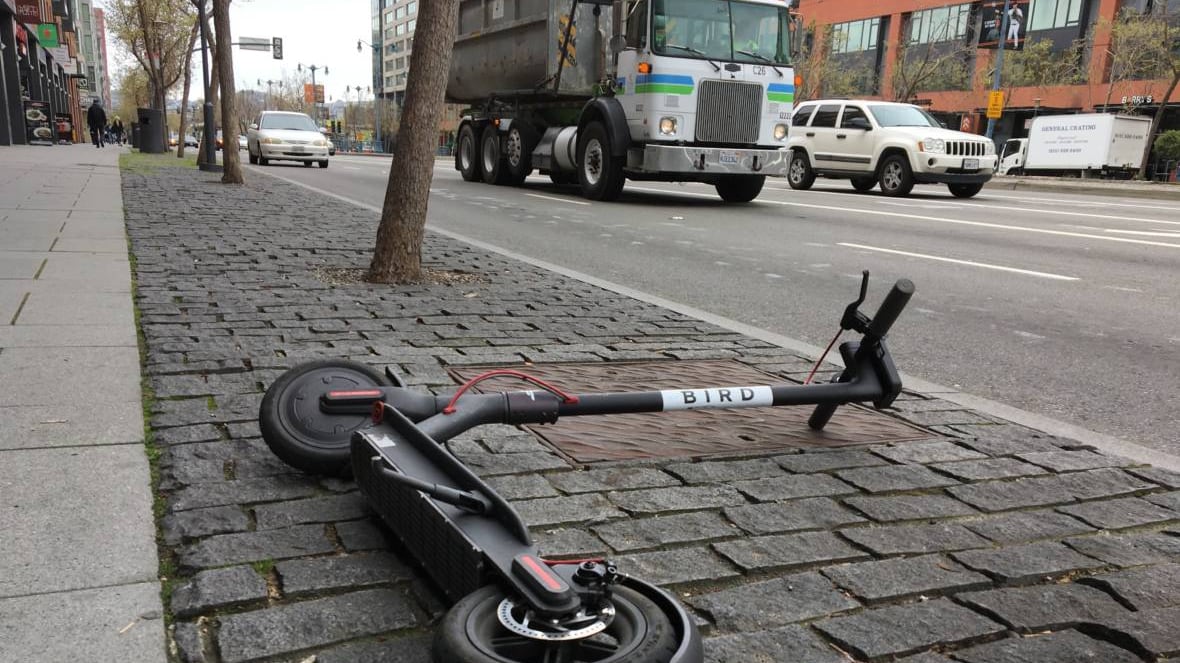Where do the scooters go when they die?
San Francisco startup Skip claims unnamed competitors dump theirs in landfills.
Related: The Portland Scooter War Is Underway, as Lime Becomes the Third Company on City Streets
In the application the San Francisco startup submitted July 12 to Portland City Hall to be approved a permit, it says other companies' claims to be environmentally friendly are hypocritical. It says that it stands apart from the others by repairing and maintaining scooters more diligently.
"Touting the environmental benefits of the electric scooter share model or carbon benefits, while building up mountains of unused scooters, seems the height of hypocrisy," Skip's application reads. "Skip […] stands in marked contrast to some of the highest funded competitors who do not disclose to the cities in which they operate that their fleets are almost completely disposable and not maintained."
It continues: "Fresh new scooters from China are flown in to replace the unrepaired scooters, maintaining fleet sizes without notable repair operation."
The application does not name its competitors, although two of the largest companies Skip is battling in California—and in Portland—are Lime and Bird.
WW asked Skip for evidence of the claim.
A company spokeswoman, Martha Shaughnessy, told WW, "In certain parts of the country, Skip has had folks on the ground working as mechanics or other roles who have talked about the general way that competitors are approaching maintenance of their fleets. The inclination is that some of the companies are swapping out scooters to be disposed of instead of repairing them, and then to keep the large number of vehicles deployed on the ground, they are flying in scooters to replace rather than repairing them."
Lime says that's not true.
In Lime's application to the city, which WW also obtained via a records request, the company notes, "If a scooter cannot be easily repaired, it is up-cycled and reused for parts."
It adds that Lime scooters have a lifespan of about four months, and that it is working with Portland agencies to develop a plan for battery recycling.
Barrett Brown, Lime's Portland operation manager, disputes Skip's description of other companies as hypocritical polluters.
"At Lime," Brown tells WW, "we believe we have a responsibility to maintain rather than discard our scooters. If a scooter is beyond repair, we will first pursue thoughtful repurposing of parts before recycling."
Bird did not disclose its scooter disposal methods in its application. A spokesperson from the company declined to comment.
